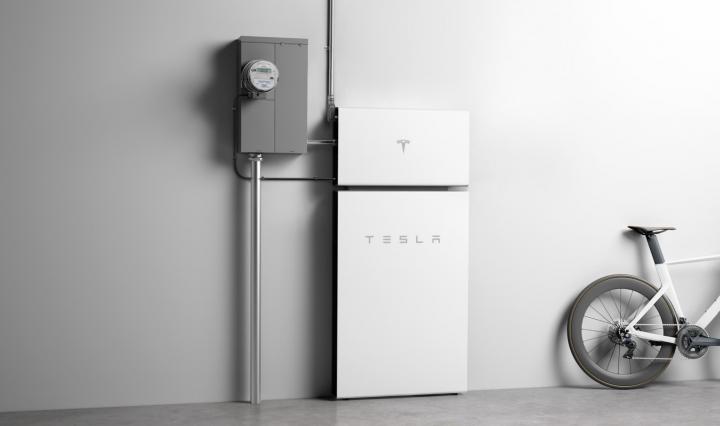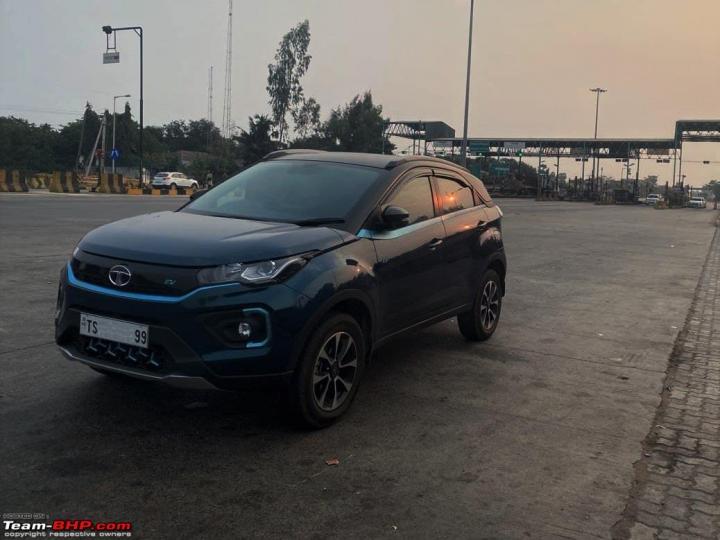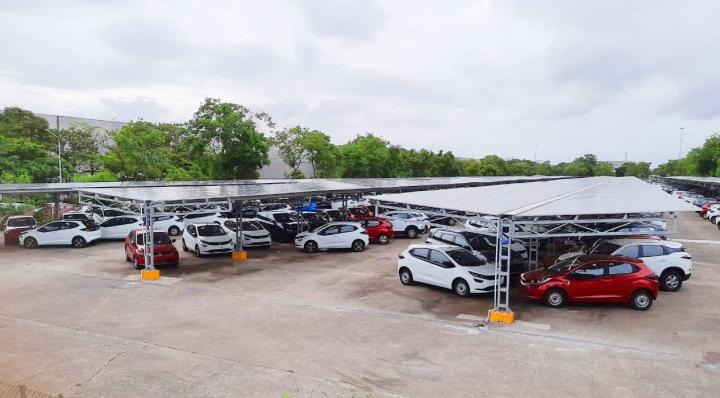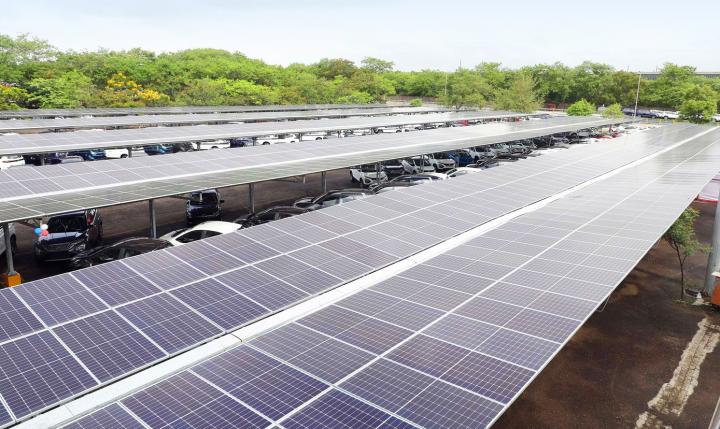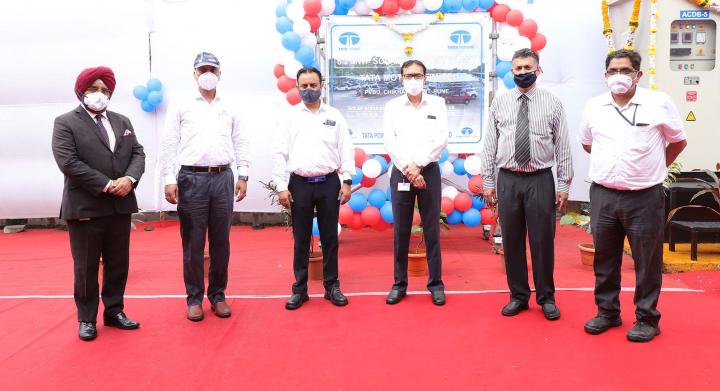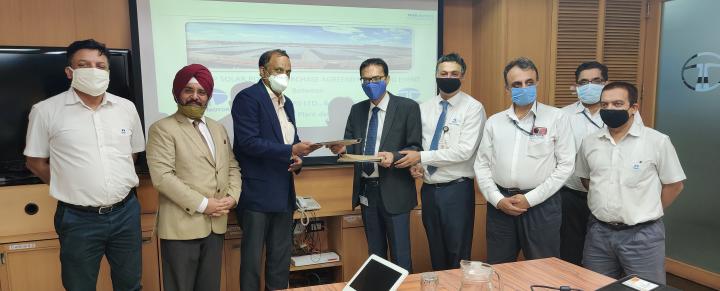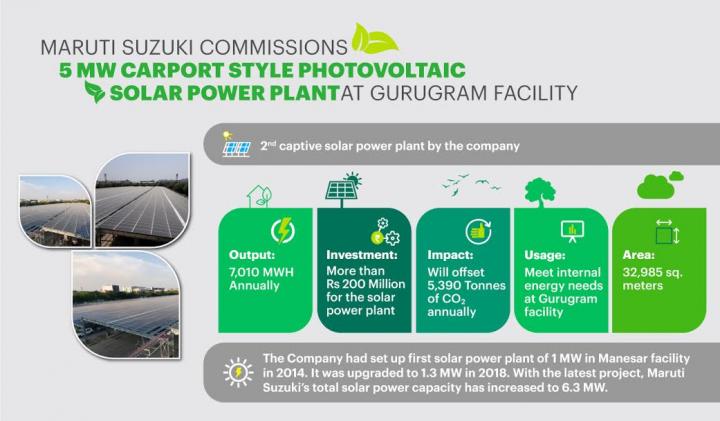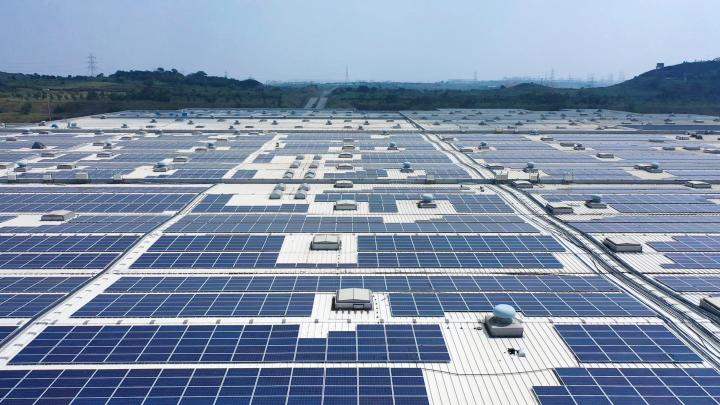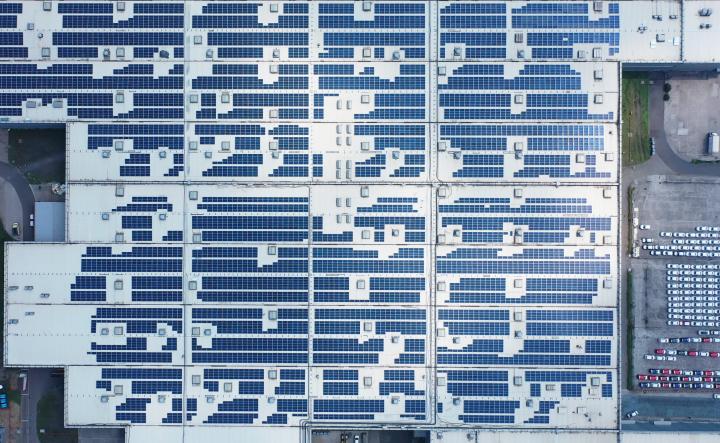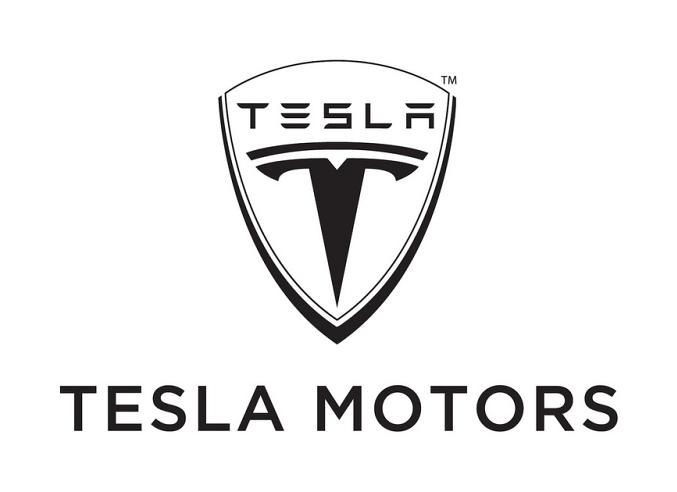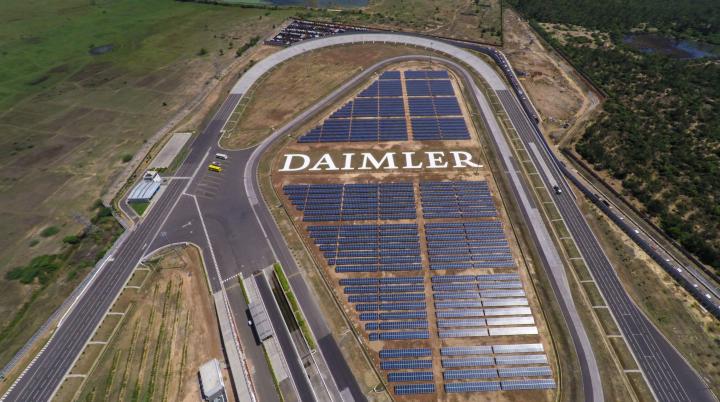News
Tesla could build Powerwall battery storage systems in India
Tesla's Powerwall is primarily aimed at domestic and light commercial use.
According to media reports, Tesla has plans to manufacture and sell the Powerwall battery storage system in India.
Tesla executives recently held a meeting with government officials in New Delhi. Reports suggest that Tesla is seeking incentives to set up a factory to build its Powerwall energy storage system that can store power from solar panels or the grid for use at night or during power outages.
Powerwall is a rechargeable home battery system that can be installed with solar. It comes in two variants: Powerwall offering a backup of 5.8 kW and Powerwall+ with a backup of 7 kW for the 5.8 kVA version and 9.6 kW for the 7.6 kVA version. Both systems have a storage capacity of 13.5 kWh.
Tesla's Powerwall is primarily aimed at domestic and light commercial use. However, it has been reported that Tesla might consider developing higher-capacity systems for industrial purposes if India approves its proposal.
India has reportedly declined Tesla's request for incentives. Another alternative would be to offer subsidies to customers. However, this proposal too is under review.
Source: Autocar India
- Tags:
- Indian
- battery
- Powerwall
- Solar power
News
Got solar power; need suggestions for buying an EV
Question is that selling excess power to the grid (aka GEB) pays a measly Rs 2.25 per Kwh whereas buying from them can go up to Rs 7.5 per Kwh.
BHPian earthian recently shared this with other enthusiasts.
In Gujarat we have a saying which goes like this: "One has a leash and hence one is looking to get a dog!"-meaning trying to maximize or optimize one's resources. Get best value for the money.
On a similar vein, i have an issue:
I am building a new house in a farm house scheme and am going to install about 11 kw solar power. Question is that selling excess power to the grid (aka GEB) pays a measly Rs 2.25 per Kwh whereas buying from them can go up to Rs 7.5 per Kwh. One may argue that the installed capacity of solar be trimmed down, but taking into account the future requirement as well as mood, i am inclined to splurge now rather than add incremental over time-involving both time and hardship.
So the leash is there (11 KW solar) and hence looking for a dog(a EV car for local running around). I know this doesn't sound right since we are investing in more capacity than required today - a waste.
But seriously looking for an EV car- Nexon or Tigor? or something else?
Here's what GTO had to say on the matter:
Tigor (if sensitive to price) or Nexon are your best and only affordable options.
Could consider the sexy Ather or Ola S1 too, as the requirement is a local runabout, but I haven't seen you posting in the 2-wheeler forum. So not sure if this is an option.
Here's what BHPian condor had to say about the matter:
How about something hatke ?
Since you have a farm, get a small goods vehicle, convert it to electric. Use this in the farm. Unless you take it out, you don't have to be worried about registration etc.Btw, recently came across a company that is working on a new line of electric power tillers/weeders.
Since you don't really need a car, why not something that can be used for the farm work?
Here's what BHPian 2000rpm had to say on the matter:
Would still suggest to sell to the grid, because of the following reasons:
It will help the environment, someone using coal powered will receive clean energy.
Any money earned, is still INCOME, use this for donations or hobbies, money better spend.
Buying a car for no need, is a wasted expense. You will hit depreciation also on this dead asset which will have limited running.
What will you do with this vehicle when your farm need exceeds the solar supply? Charge it by paying 7.5 INR per KWH?
Here's what BHPian fordday had to say on the matter:
I think this is the dog you are looking for.
Sonalika Electric tractor. Tiger electric.
100% torque at 100% times.
It fits your requirement to a T.
Check out BHPian comments for more insights and information.
News
Mercedes India to become carbon neutral by Dec 2022
Mercedes has also made it mandatory for its vendors to set a roadmap to achieve carbon neutrality by 2039.
Mercedes-Benz India has set an ambitious target to become carbon neutral. The company aims to have a completely sustainable production process by December 2022.
To achieve this, Mercedes-Benz India plans to set up a 3.6 MW solar-powered generation plant by the end of this year. It is expected to satisfy around 50% of its energy requirement and is estimated to reduce annual CO2 emissions by 3,700 tons.
The carmaker plans to purchase international renewable energy certificates to offset a part of its carbon footprint. In a bid to become 100% carbon neutral, Mercedes has also made it mandatory for its vendors to set a roadmap to achieve carbon neutrality by 2039.
Source: ET Auto
- Tags:
- Indian
- Solar power
- Emissions
News
Tata Motors sets up India's largest Solar Carport in Pune
The 6.2 MWp solar carport will generate 86.4 lakh kWh of electricity per year and is estimated to reduce 7,000 tons of carbon emissions annually.
Tata Motors has partnered with Tata Power to set up India's largest Solar Carport at its car plant in Chikhali, Pune.
The 6.2 MWp grid-synchronized, behind-the-meter solar carport will generate 86.4 lakh kWh of electricity per year and is estimated to reduce 7,000 tons of carbon emissions annually and 1.6 lakh tons over its lifecycle.
In addition to generating green electricity, the 30,000 sq. mt. carport will also provide covered parking for finished cars in the plant. It was built in a record time of 9.5 months.
The project is part of Tata Motors' net zero carbon goal for 2039. According to the company, it generated 88.71 million kWh of renewable electricity which is over 21% of its total power consumption in FY2020. This is said to have prevented the equivalent of 72,739 metric tons of carbon dioxide emissions.
News
Tata Motors to set up India's largest Solar Carport in Pune
Tata Power has signed a Power Purchase Agreement (PPA) with Tata Motors to set up India's largest solar carport with a capacity of 6.2 MWp.
The new solar carport will be set up at Tata Motors' Chikhali plant, near Pune. It will generate 96 lakh units per year and will help reduce CO2 emissions by around 1.6 lakh tonnes.
There are quite a few advantages of solar panel carports. First and foremost, carports do not require dedicated land. Instead, they can be installed in open parking lots. They form overhead canopies enabling vehicles to be parked under the panels.
Tata Power has installed the world's largest rooftop solar power facility at RSSB, Amritsar, which has a capacity of 16 MW. The company has also set up the 2.67 MW facility at Cochin International Airport, world’s largest solar powered cricket stadium - Cricket Club of India with 820.8 kWp capacity, 120 kW solar vertical farm at Dell Bangalore and a 1.4 MW floating solar facility at Tata Chemicals.
- Tags:
- Indian
- Solar power
News
Maruti Suzuki sets up 5 MW solar power plant in Gurgaon
Maruti Suzuki has set up a 5 MW carport style photovoltaic solar power plant in Gurgaon.
According to the company, the solar power plant was set up with an investment of Rs. 200 million. The annual output of the plant is 7,010 MWH. It is expected to offset 5,390 tonnes of CO2 emissions annually, for the next 25 years.
In 2014, Maruti Suzuki had installed a 1 MW solar power plant at Manesar. It was upgraded to 1.3 MW in 2018.
With the addition of a second solar power plant, Maruti's total solar power capacity has increased to 6.4 MW.
- Tags:
- Indian
- Solar power
News
Volkswagen installs 25,770 solar panels at Chakan plant
Skoda Auto Volkswagen India has set up what it claims to be the largest rooftop Solar PV power project in the auto industry worldwide.
The carmaker has installed 25,770 photovoltaic panels covering 63,000 sq. m. of roof space at its Chakan plant. It can produce 12.2 million kWh of energy annually. The 8.5 MWp renewable energy project is said to contribute between 15-20% of the plant's total energy consumption. It is expected to reduce carbon dioxide emissions from the production process by 9,020 tons per annum.
Last year, the carmaker had installed solar panels with a capacity of 980 kW at its manufacturing plant in Aurangabad. It produces up to 1.5 million kWh, which is claimed to reduce carbon dioxide emissions by 922 tons annually.
The combined capacity of both installations is 9.4 MWp, which is expected to save close to 10,000 tons of CO2 emissions annually.
- Tags:
- Indian
- Skoda
- Solar power
News
ISRO showcases its solar-electric hybrid car
The Indian Space Research Organisation (ISRO) has recently showcased a solar-electric hybrid vehicle. The organisation used a Maruti Suzuki Omni as the project vehicle.
The said solar-electric car has been developed by the Vikram Sarabhai Space Centre (VSSC) facility in Thiruvananthapuram, which is a part of ISRO. The engineers have planted a solar panel on top of the Omni's roof, which is responsible for charging the car's lithium-ion batteries on the go. The Omni, which is conventionally driven by an internal combustion engine (ICE), has been converted to draw power from a brushless DC motor.
ISRO has also employed a power conversion module between the energy system and electric motor to convert electric energy into mechanical energy. The lithium-ion batteries are connected across high power-density super capacitors. These capacitors are used to supply peak power during high torque conditions.
ISRO is also claiming that all these alterations in the car have been done while making sure that the safety aspects of the vehicle aren't compromised. However, the organisation hasn't revealed any range related figures or other specifications of the said solar-electric hybrid project car.
Source: Car and Bike
- Tags:
- Indian
- ISRO
- Solar power
News
Tesla bids Rs. 23,500 crore to acquire SolarCity
Tesla Motors has made an offer worth Rs. 23,500 crore to buy SolarCity, an American company that deals in solar power systems for houses and industries. Tesla, in an official statement, has suggested that SolarCity's technology can be used to supply energy to its fleet of electric cars.
Interestingly, Elon Musk, who is the founder and CEO of Tesla Motors, was a co-founder of SolarCity, which is now under the reigns of his cousin. Musk is also the largest shareholder of both companies, and is currently designated as the Chairman of the SolarCity board. Moreover, Tesla supplies battery packs for the solar systems employed by SolarCity. Keeping in mind this close relation between the two companies, market experts suggest that a deal will be signed soon.
The proposal from Tesla involves a stock-swap deal under which, Tesla will exchange all outstanding shares of the common stock of SolarCity, by Tesla common shares. As a result, Tesla is offering a 21 to 30 percent hike on each share of SolarCity. In monetary terms, this deal is being valued at £2.4 billion, which translates to around Rs. 23,623 crore.
If the above deal does see the light in the near future, it will make Tesla the only vertically integrated energy company in the world to offer end-to-end solar power solutions. These would include solar systems at your home or office, electric cars, and a solar system to supply power to charge the electric car.
SolarCity is currently under a debt of $3 billion, while the most recent earning reports claim that the company isn't profitable either. But SolarCity officials claim that they would start making profits from the end of this year.
News
Daimler India expands solar power capacity to 3.3 Megawatts
Daimler India Commercial Vehicles (DICV) has completed a major expansion of its solar power generation capacity, at the company's manufacturing plant located in Oragadam, near Chennai. DICV has made a significant addition to the photovoltaic cell installations at its manufacturing plant, which has increased its power generation capacity from 0.8 MW to 3.3 MW.
The solar power field has been located intelligently within the confines of the manufacturing plant's test track. This has resulted in optimum utilization of the land between the circuit where Daimler's commercial vehicles are tested. The aforementioned expansion of solar plant includes 10,000 new photovoltaic panels. These newly installed polycrystalline solar panels have increased power generation of the plant by more than 300%. Daimler India claims that it is now generating more than one-fourth of the total daytime average electric power needed at the Chennai plant, using environment-friendly renewable energy.
In addition to the said solar power plant, DICV, which is a wholly owned subsidiary of Daimler AG, has also taken several other steps in order to make manufacturing more environment-friendly and sustainable. The company has planted 16,000 trees in the 400 acres wide Chennai campus, since it started operations here in the year 2012. An advanced rainwater harvesting system too has been put in place that holds water in a large pond of 60,000 kilolitre capacity. Two sewage treatment plants have been commissioned to return clean water that can be used for irrigation.
Through these efforts, Daimler India plans to make its Commercial Vehicle plant in Chennai one of India's greenest industrial complexes.



